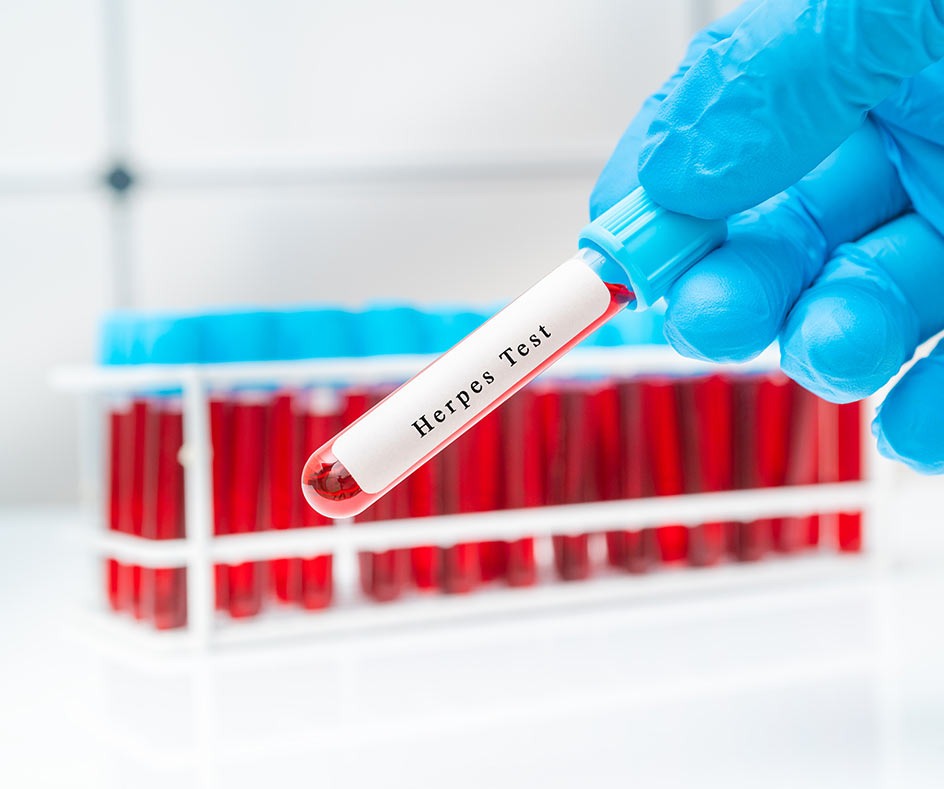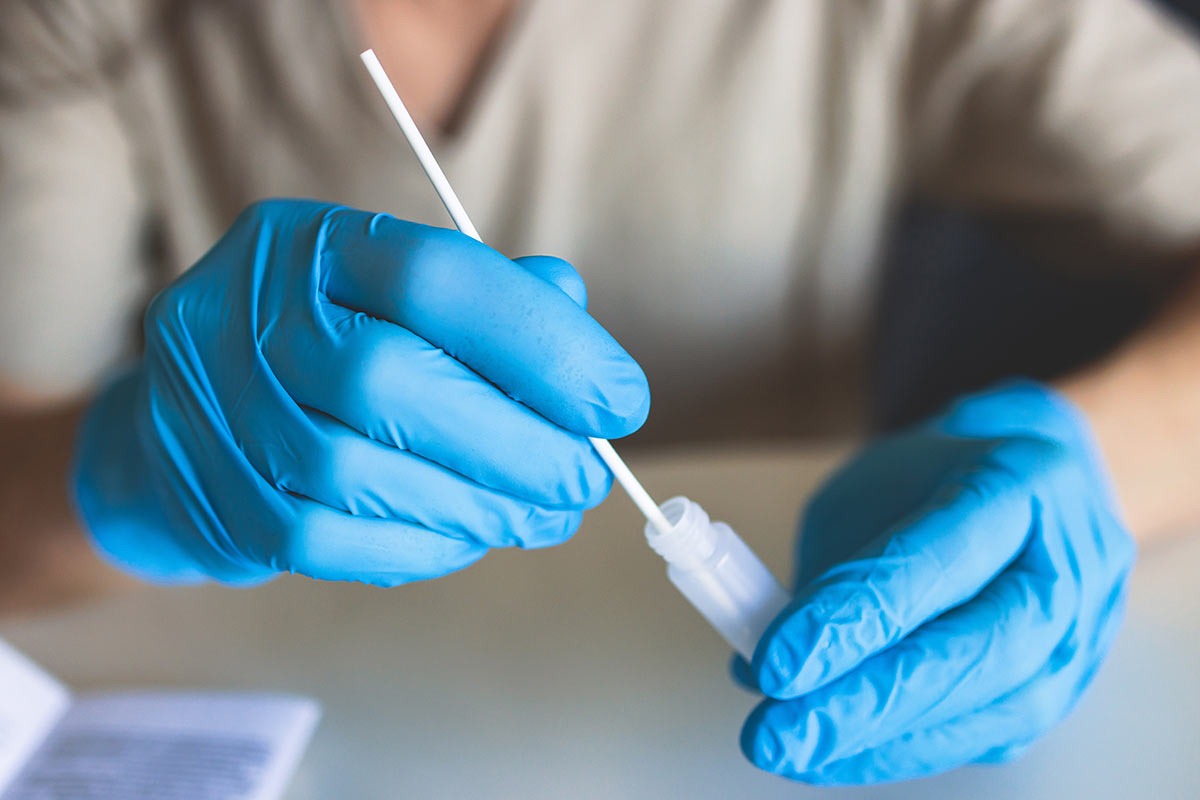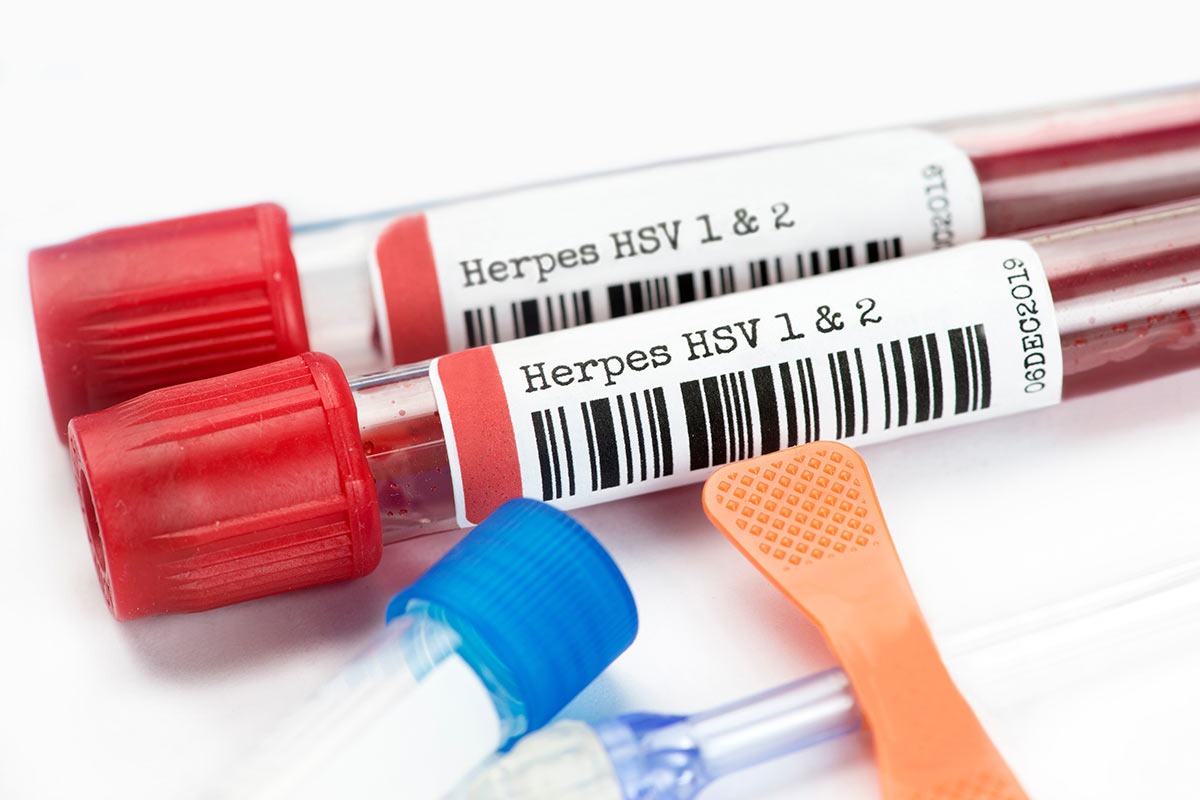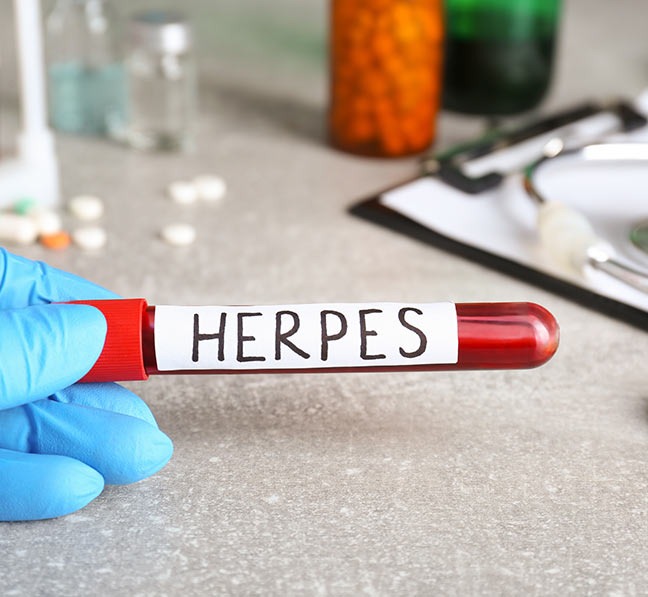Located at 20 Old Brompton Road – Just Steps from ![]() South Kensington Tube. Easy Access, Always.
South Kensington Tube. Easy Access, Always.
We specialise in offering fast, discreet and convenient herpes blood testing in London. We are available for same-day appointments, including weekends and evenings.
Our GP clinic is committed to providing a premium service, allowing you to speak to an experienced private doctor for diagnosis and advice on the most suitable treatments. Different blood testing options are available such as bone profile, urine and swab tests.

Herpes is a viral infection occurring from the herpes simplex virus (HSV). Two types of herpes affect people, HSV1 and HSV2. Herpes usually affects the mucous membrane, which makes the areas around the mouth, thighs, genitals and buttocks the main infection sites.
Herpes is a sexually transmitted infection, meaning you can get herpes from sexual intercourse with an infected person. Unlike common STIs like chlamydia and gonorrhoea, herpes has no cure, but you can manage the symptoms and suppress breakouts with anti-viral medications.
If you contract herpes and need optimum healthcare and management, contact GP London.


Herpes can get transmitted from the infected partner through:
Congenital herpes can occur when an infected mother transmits herpes to her infant.
Most people identify herpes infections when symptoms occur, usually blisters on the skin. However, these symptoms may not occur after the initial infection.
Genital herpes can be transmitted from infected bodily fluids such as sores, vaginal fluid, saliva, semen, herpes lesions or blister fluid. You can get herpes through unprotected vaginal, anal, oral sex or direct skin contact with your infected partner.
The risk of herpes transmission, both HSV1 and HSV2, through infected bodily fluids increases, if active, open lesions or sores are present, but you can also get herpes if your partner shows no symptoms.
The best way to protect yourself from herpes infections is to avoid sexual activity with anyone showing herpes symptoms. Using latex or polyurethane condoms can reduce the risk of transmission, but condoms cannot cover all infected areas. You can still contract HSV1 and HSV2 even if you use a condom.
If you suspect you have symptoms of HSV1 or HSV2, it is important to see a doctor for a diagnosis. If you do not have obvious symptoms, the doctor may order either a swab test or a blood test to help make a definitive diagnosis.
Herpes diagnosis can be with a viral culture swab test or nucleic acid amplification test (NAAT). NAATs and a viral culture test will show a positive result if the virus is present in the sample.
A blood test is necessary for asymptomatic herpes infection screening. This blood test detects antibodies from the Herpes virus.
Following a herpes infection, the body produces antibodies to fight the infection. The herpes blood test measures the antibodies in the blood sample.
It usually takes the body about two weeks to produce antibodies, so the levels and presence of antibodies can detect if you have a recent or past herpes infection.
When a re-infection occurs, the antibody test will not help much because the antibodies remain in the body when the virus is dormant.

The types of herpes blood tests include:
Type-specific herpes blood test – This herpes blood test detects if you have antibodies for the herpes virus, and the antibodies are specific for HSV2 or HSV1.
General herpes blood test – It checks for antibodies for herpes and doesn’t specify if the antibodies are for HSV1 or HSV2.
The different blood test that identifies viral proteins have their pros and cons. It may be difficult to detect the HSV1 incubation period, but the incubation period for HSV2, the time between contracting the infection and when the test shows a positive result, include:
It takes about two weeks for herpes symptoms to occur after HSV1 or HSV2 infection. If lesions are present and you swab tests, you should wait 1 – 2 months before re-testing for HSV2 because your body needs time to produce antibodies that a blood test can detect.



Call GP London Clinic on 020 7043 4317 to book an appointment for your herpes testing. You can also have a walk-in appointment for herpes testing at 20 Old Brompton Road, South Kensington, London SW7 3DL.